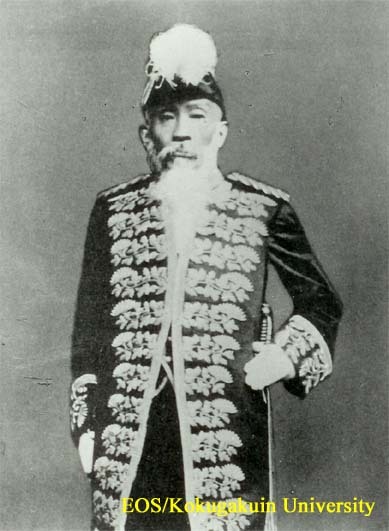- トップ
- Encyclopedia of Shinto
- Sugiura Jūgō
Encyclopedia of Shinto
| Main Menu: | |
| Links: |
詳細表示 (Complete Article)
| カテゴリー1: | 8. Schools, Groups, and Personalities |
|---|---|
| カテゴリー2: | Personalities |
| Title | Sugiura Jūgō |
| Text | (1855-1924) Educator and philosopher of the Meiji and Taisho eras. Born in 1855 as the second son of Confucianist Sugiura Jūbun in the Zeze Domain of Ōmi Province (in present-day Shiga Prefecture). His styled was Tendai Dōshi. As a youth, he received training in Chinese classics at the Jungidō domainal academy where his father taught, then he entered the South Campus of the Institute of Great Learning (precursor to the University of Tokyo) as a highly recommended pupil, and in 1876 traveled to England to study chemistry. After his return to Japan in 1880, he served as principal of the University of Tokyo Preparatory Academy, principal of the Japan Middle School (Nihon Chūgakkō), Dean (gakkan) of Kokugakuin University, and General Secretary of the Koten Kōkyūsho (Research Institute for the Japanese Classics). In addition to his educational activities, Sugiura was a patriotic social critic who helped launch the serial Nihonjin (The Japanese) and the newspaper Nihon (Japan). To counter the uncritical adoption of all things European prevailing in his day, Sugiura promoted a form of nationalism that called for the revival of native Japanese culture and traditions and for the equality of the four traditional social statuses (warrior, farmer, artisan, merchant). Sugiura also served one term as a member of the House of Representatives. In 1914, he was appointed Commissioner at the Crown Prince Study Institute (Tōgū Ogakumonjō), where he was responsible for ethics. He died November 13, 1924, at his home in Yodobashi, Tokyo, at the age of seventy. His most important writings are contained in the Sugiura Jūgō zenshū (Collected Works of Sugiura Jūgō, in six volumes). —Ōhara Yasuo |




